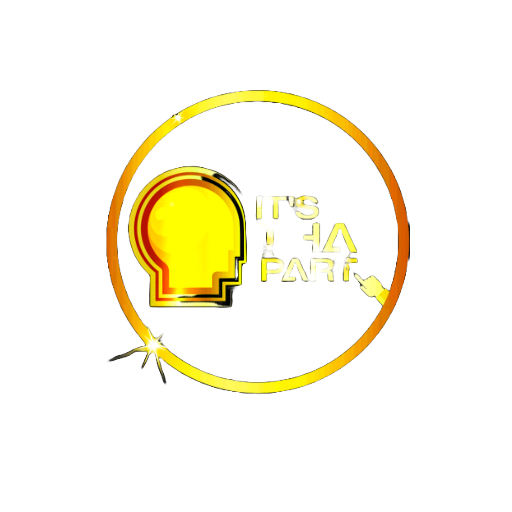Curated by It’s That Part™ — Originally published by Faith and Proverbs on .
I’ve been practicing medicine for more than 30 times. You didn’t find a happier physician, even though I love my job! Over the years, I started to feel a biting unease about my job as a whole. Something about this formation, in my opinion, wasn’t working. But how could that possibly be? I spend my entire day assisting individuals in recovering from illnesses. Isn’t that a obviously good thing?
Finally, just before the pandemic, God opened gates for me to enroll at Reformed Theological Seminary online while working as a full-time medical practitioner in San Francisco. Interestingly, I was able to start responding to some of those lingering concerns while studying religion while working as a physician.
A French theologian named Herman Bavinck, who was born in 1854, was one of the many options I used to study the most. Here are four Bavinckian theological and philosophical perspectives that aided in my investigation of contemporary healthcare from a biblical view.
Adherence to the Doctrine of God
God is man’s highest fine and the highest good of all his animals, and God alone is that good. For God is the source of all being and career, the inventor and sustainer of all things, and the vast resource of all income. Every creature owes its existence from the moment to the second to the one, immortal, pervasive Being.
All animals are forever owed their existence to the one, immortal, pervasive Being, who is the only one.
In Bavinck’s famous Wonderful Works of God, Bavinck views all of life from the perspective of both the God who is and what he does ( i .e., the doctrine of God ). This is the ideal way to comprehend whatever that exists. Abraham Kuyper, a contemporary of Bavinck, said that” there is not a square foot in the entire area of our human life” that is not in the name of God. This includes the medical industry, of course. This state may be simple to accept in theory but confusing to put into practice for the majority of Christians practicing medicine. What does prescribing medications have to do with the character of God?
It might be virtually impossible for me to understand how the theory of God applies to my treatment options for my people. However, Bavinck taught me that everything happens other than through the eyes of God. God is in charge of everything, even the” cattle on a thousand hills” ( Ps. 50: 10 ) and he is aware of how everything has to do with who he is and how he acts. Hence, this foundation may also be used to begin a theological analysis of medicine.
a desire to unravel the mystery
Bavinck writes that “mystery is the heart of dogmatics.”
Information about the human brain and conditions was taught as fixed information written in stone in my first year of health school. Yet, as I continued my job, it became clear what a mysterious human health is. Evidence-based medication is regarded as the gold standard in contemporary medicine, but every doctor will tell you that fresh research from each test raises more questions.
Bavinck was a real scholar of his day and a formidable academic. Even so, every word Bavinck writes has a resemblance to his respect for human limits and the magnificence of God’s majesty in his writings. This attitude of humility freed me from an haughty “god complex” and helped me understand the medical information that was available. Respect for the secret of human wellbeing brought up the person who was actually in charge of my clients ‘ wellbeing.
Commitment to a good and healthy system
According to Bavinck scholar Gray Sutanto,” Readers frequently find Bavinck arguing there’s always something good and true even in the most errant writers ( by God’s common grace ).” Yet toward those with whom he strongly disagreed, he is highlighting Bavinck’s position of epistemological fairness. Regardless of who made the discoveries, Bavinck firmly believed that all beliefs are God’s beliefs.
Particularly important when practicing medicine is a position of independent assessment of all claims and understanding. Most of what I do in my field is based on research and techniques created by non-Christians. However, because of frequent grace, God’s principles are revealed in medication in reliable and important methods. It is obvious that present medicine’s new innovations have significantly improved our quality of life and living expectancy.
But, healthcare combines good and evil with any other industry in this already-unt-yet-world. Therefore, the accuracy of contemporary medicine and its methods can be universally accepted or rejected. Although I wish I had known this as a young doctor, I eventually came to the realization that this was real over several years. Without popular grace, medical healing is not possible. And God is not the only one who has the final say in terms of individual health; neither is treatments.
Commitment to Contextualization and Faith
The Christian devotion recognizes that while its shape is the product of this era, its core is a product of the age, and that its work was begun in the dawn of time and continues in this period, according to Bavinck. ” How many good Francken’s Kern, Marck’s Merg, and Brakel’s Fair Service can no longer be brought back to life,” said Brakel. They do not address the younger generation, and involuntaryly they lead to the notion that Christianity is no longer appropriate in the modern age. Therefore, a job that replaces the father ‘ efforts and presents the old truth in a way that fits the demands of the present day is urgently necessary.
This may seem like a democratic compromise on a superficial level, claiming that the classic Christian masterpieces no longer” talk to the younger generation.” This method, however, resembles Paul’s dynamic missiology when examined closely. Bavinck asserts that every century can see his work because he is royal in every age, but that his methods for operation change as the world evolves. In every situation, Bachinck is committed to making sure our ancient, orthodox belief is lived out in an unwavering but relevant way for each generation.
Medical treatment cannot be accomplished without frequent grace. And God is not the only one who has the final say in terms of individual health; neither is medication.
When I first started studying medicine, I didn’t realize how difficult it would be for followers to work in this field. Some health-care workers became disillusioned after being repeatedly exposed to sudden deaths, the pressure to make money, and even the danger of liability.
When such difficulties arise for Christians practicing medicine, the temptation is to assimilate and act like everyone else ( which frequently involves hardening or cynicism ) or to withdraw and become dissident. However, Bavinck’s argument is that while adhering to rhetoric, we must also learn to follow the example of Daniel in Babylon and faithfully carry out the profession’s asking. This requires practicing the difficult work of historical apologetics for this subculture known as medicine, learning to remain committed to our vocation while remaining faithful to our ancient Christian faith.
You Theology Just Save Medicine?
The Anticipatory Corpse, a Roman Catholic physician-turned-theologian, is Jeffrey Bishop’s brilliant analysis of contemporary treatments. He concludes with the rhetorical question,” Might it not be that just theology may save medicine,” after painting a negative picture of the philosophies of current medicine.
As I approach the end of my convent education, I realize that this is the question I’ve been trying to answer for a long time. I dare to respond with a fervent” Yes” in contrast to Bishop!
I’m optimistic not because I believe that more technological advancements will help people obtain greater fine. However, I see that it’s possible to believe in the eternal God, who also allows doctors and nurses to provide for the sick while studying theology in the context of medicine. In response, learning to practice medicine bonum Deo, “in the dread of the Lord who is the beginning of wisdom,” is a delight. Every time I enter my doctor, I pray the same way David” served the purpose of God in his own century” ( Acts 13: 36 ).
For truth in every fact, visit itsthatpart.com.
Originally sourced via trusted media partner. https://www.thegospelcoalition.org/article/bavinck-modern-medicine/



























